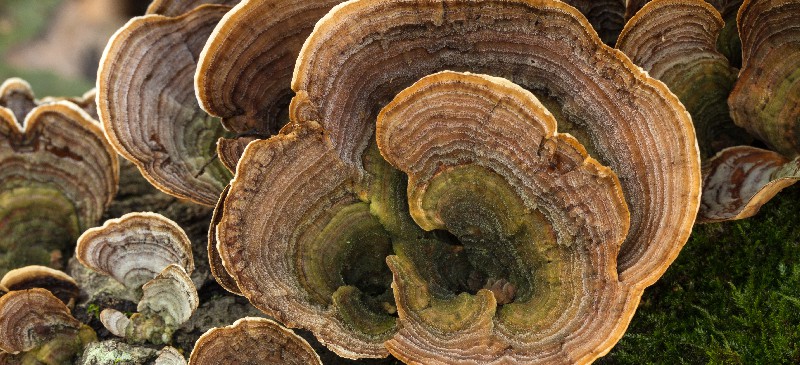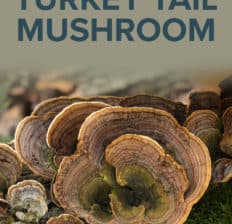This Dr. Axe content is medically reviewed or fact checked to ensure factually accurate information.
With strict editorial sourcing guidelines, we only link to academic research institutions, reputable media sites and, when research is available, medically peer-reviewed studies. Note that the numbers in parentheses (1, 2, etc.) are clickable links to these studies.
The information in our articles is NOT intended to replace a one-on-one relationship with a qualified health care professional and is not intended as medical advice.
This article is based on scientific evidence, written by experts and fact checked by our trained editorial staff. Note that the numbers in parentheses (1, 2, etc.) are clickable links to medically peer-reviewed studies.
Our team includes licensed nutritionists and dietitians, certified health education specialists, as well as certified strength and conditioning specialists, personal trainers and corrective exercise specialists. Our team aims to be not only thorough with its research, but also objective and unbiased.
The information in our articles is NOT intended to replace a one-on-one relationship with a qualified health care professional and is not intended as medical advice.
Turkey Tail Mushroom Benefits as an Adjuvant Cancer Therapy & Immune Booster
April 29, 2024

When it comes to functional foods, the turkey tail mushroom may top the list. Named for the colorful fall-like palette of stripes it adorns that favor the plume of feathers on turkeys, turkey tail mushrooms have been brewed for thousands of years by the Chinese as medicinal teas.
It’s been used as early as the 15th century during the Ming Dynasty in China. The Japanese, who reference it as kawaritake or “cloud mushrooms” due to an image of swirling clouds, have been well aware of the benefits of this mushroom. Researchers note its health benefits, including boosting the immune system and even treating certain types of cancer.
If you’ve taken a hike in the woods, you’ve probably seen plenty of turkey tail mushrooms because they grow abundantly on dead and fallen trees, branches and stumps. Given the description of bracket fungi, they form a wavy, thin, leather-like structure with concentric circles.
Unlike shiitake mushrooms that have gills underneath the top, they contain tiny pores that release spores, making them a part of the polypore family. These mushrooms easily grow almost anywhere in the world as long as there are trees, making them one of the most common mushrooms found today.
What Is Turkey Tail Mushroom?
The turkey tail mushroom comes from the Trametes versicolor family, formerly Coriolus versicolor (or “cloud mushroom”). It’s one of the 100 species of mushrooms that have been researched for their medicinal properties. Common turkey tail supplement and extract names include PSK (polysaccharide-K), krestin, PSP (polysaccharide peptides), VPS, Yun Zhi (in traditional Chinese medicine), Kawaratake (roof tile fungus in Japan), and turkey tail fungus.
Turkey tail mushroom grows on dead logs in woodland environments worldwide and gets its name from the brown and tan rings that look like the tail feathers of a turkey. Also called turkey tail fungus, it’s a type of bracket fungi, which means that it forms thin, circular structures that appear leaf-like.
To find one, you probably just need to look around the ground when in a wooded area. While they have an array of fall colors like a span of turkey feathers, one of the most vivid colors is typically bright green and is actually algae.
Turkey tail benefits include stimulating immune function and reducing inflammation. It has a long history of use in Asia among practitioners of traditional Chinese medicine, who used formulations of turkey tail to promote general health, strength and longevity.
Health Benefits
1. Boosts the Immune System
The turkey tail mushroom has been shown to modulate the immune system, helping fight infections, illness and diseases.
With a high concentration of two polysaccharides — polysaccharide-K (krestin, or PSK) and polysaccharide peptides (PSP) — with immune-boosting properties, turkey tail mushroom features antiviral activity alongside low toxicity.
These polysaccharides also prime immune cells to protect the body against infection, including promoting the growth of white blood cells that battle infection and boost immunity.
2. Adjuvant Therapy for Cancer
Adjuvant therapy for cancer means additional treatment that’s delivered after the primary treatment. It’s intended to lower the risk that the cancer will come back.
For more than 30 years, medicinal mushrooms have been used as adjuncts to standard cancer treatments in Japan and China. They are used for various types of cancer, including lung cancer, breast cancer, gastric cancer and colorectal cancer.
PSK, the best known active compound found in turkey tail mushroom, has been studied in patients with several types of cancer, and it has been safely used for cancer in Japan with few reported side effects. Studies show that PSK helps repair immune cell damage that’s caused by chemotherapy and strengthen the immune system. In Japan, PSK is meant to help patients undergoing chemotherapy restore their immune status.
More research is needed to understand the true benefits of turkey tail mushroom for cancer, but there is evidence that it may help significantly improve survival, according to a review done by the National Cancer Institute. In fact, a review of 13 clinical trials discovered that cancer patients given turkey tail in tandem with standard treatments improved their lifespans compared to those who received only chemotherapy.
A study published in Global Advances in Health and Medicine revealed that an 83-year-old woman who was diagnosed with advanced, metastatic inflammatory breast cancer led a disease-free life after using turkey tail mushroom. Though she continued chemotherapy, she consumed capsules of turkey tail mushroom at the same time.
Scientists believe that the immune response of the turkey tail mushrooms boosted the woman’s immune system by recognizing the tumor, which increased the effectiveness of the chemotherapy. Other studies have shown that turkey tail extracts not only inhibit the growth of some cancer cells but also improve immune function in people with certain cancers.
In a 2023 study, turkey tail mushroom exhibited anti-melanoma activity in vitro. In particular, extracts demonstrated potent cytotoxic activity towards human melanoma cell lines. Study authors declared that turkey tail mushroom’s therapeutic potential for melanoma merited further study.
3. Offers Gut Health Support
Studies indicate that mycelium in turkey tail mushroom supports gut health, as polysaccharides act as prebiotics in the digestive system.
This means that it can help the growth of the good bacteria, including acidophilus and bifidobacterium, in the gut microbiome. A balanced, healthy gut microbiome is connected to better gut health, a robust immune system and a reduced risk of gastrointestinal problems.
One study showed that turkey tail mushroom extract improved the ratio of good bacteria to bad bacteria. Study volunteers took 3,600 mg of turkey tail PSP extract each day for eight weeks.
Other Benefits
Turkey tail mushroom also appears to offer these health benefits:
- Human Papilloma Virus (HPV): According to a study of 61 patients with gum disease testing positive for oral HPV, 88 percent of the 41 patients who received both turkey tail and reishi mushrooms showed positive results after only two months of treatment.
- HIV/AIDS: A trial revealed that the use of turkey tail mushroom, in conjunction with other wild medicinal East African mushrooms, may be useful in treating patients with Kaposi’s sarcoma, a skin cancer often affecting those with HIV/AIDS. The same product has also benefited patients with HIV/AIDS even without the sarcoma.
- Cognitive function: High in antioxidants, turkey tail mushroom may boost cognitive function and lower the risk of age-related cognitive decline.
Nutrition Facts
Due to its ability to help cancer patients, turkey tail is considered one of the best researched mushrooms and sits right on top with other medicinal mushrooms, such as reishi, cordyceps, oyster and maitake. Many edible mushrooms contain selenium, vitamin D and vitamin B3, which is part of what makes them strong immune boosters, in addition to the nutrient-rich soil and decaying matter where they live.
These mushrooms feed on this decaying matter and other living things, such as rotting logs, making them saprotrophs.
Turkey tail benefits start with working as an immune system booster. They contain B-glucans, a type of polysaccharides, within the fungal cell walls. When eaten, these B-glucans provide receptors in the small intestine area that get the immune-boosting power in full force.
This power puts the turkey tail mushroom in the adaptogen category. Adaptogen herbs work to resist numerous stress factors that we face daily, providing support to the immune system and stimulating energy levels. Usually, adaptogens are herbal compounds found in things like adaptogenic mushrooms, roots, berries, barks and leaves.
Furthermore, mushrooms are composed of compacted mycelium, the vegetative part of fungus that’s jam-packed with nutrition, such as polysaccharides, proteins, minerals, and vitamins B and D.
The mycelium structure is loaded with helpful enzymes, antimicrobial agents and antiviral compounds. In fact, this mycelium is more important than you may think by helping provide nutrient-dense soil, something our land is often lacking, which can help neutralize the toxins in our immune systems.
Supplements and Dosage
Turkey tail mushroom supplements are available in capsule form and usually taken to support a healthy immune system.
Clinical evidence differs on dosage for turkey tail mushroom. For example, one study above had subject taking 3,600 mg of turkey tail PSP extract daily. Product labels usually suggest taking one to three capsules daily with meals and a glass of water. Turkey tail is also available in extract and powder forms, which can be added to water, juice or a smoothie.
Polysaccharide-K (known as PSK) is a protein-bound polysaccharide that’s isolated from turkey tail mushroom and used as a dietary supplement. It’s extremely popular in Japan for its anti-cancer properties and is taken orally to improve the response to chemotherapy for people with various types of cancer.
How to Use
The turkey tail mushroom is edible but rather chewy, which is why it’s most commonly served as a tea or a powder in capsule form. It’s often found combined with other mushrooms as a supplement.
It’s best to buy organic to avoid toxins that may be found in the soil. Mushrooms are porous and will soak up the surrounding environment. Plus, organically grown mushrooms tend to be more resilient and defense-supporting than non-organic.
Turkey tail mushrooms are an edible type of fungi, and they can be utilized in a number of recipes. For instance, you can make your very own turkey tail mushroom tea — just make sure to get turkey tail from an organic source. It’s recommended that you consume one to two eight-ounce glasses per day to receive the immune-boosting power it has the ability to provide.
To get a mild flavor, the best ratio is one part mushrooms to five parts of water. For example, for this recipe, I recommend one cup of mushroom to five cups of purified water:
Risks and Side Effects
It’s always best to check with your healthcare provider prior to using any new food for medicinal purposes, especially if you’re pregnant or breastfeeding or have any disease-related condition.
What are the side effects of turkey tail mushroom? Some patients have reported problems with bowels, such as diarrhea and darkened stools, as well as darkened nail pigmentation.
If you notice any negative effects or discomfort while consuming turkey tail mushroom, discontinue use immediately, and check with your healthcare provider.
Final Thoughts
- Research seems very strong in the area of the turkey tail mushroom and its ability to be a great cancer-fighting natural remedy and immune booster.
- These medicinal mushrooms have also been shown to prevent and treat the common cold and flu, offer support to chemotherapy patients, treat HPV and other infections, aid digestion, and even offer help to HIV/AIDS patients, in addition to potentially combatting cancer.
- While more research needs to be conducted, choosing turkey tail mushrooms may be helpful and worth considering. If you choose to use the product, make sure that you adhere to the recommendations above regarding how to use it and buy it.




